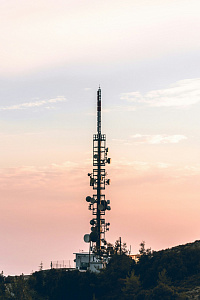The Draft Law “On the Specifics of Regulation of Corporate Relations in Business Companies that are Economically Significant Organisations” (“Draft Law”), adopted in the second and third readings by the State Duma of the Russian Federation on 20 July 2023, may help resolve a number of the issues mentioned above.
If signed into law by the President of the Russian Federation, the Draft Law will come into force 30 days after the date of its official publication.
We analyse the text of the Draft Law in more detail below.
1. What entities does the Draft Law apply to?
The Draft Law applies to the so-called economically significant organisations (“ESOs”) included on the special list approved by the Government of the Russian Federation (“List”) and meeting certain financial and other criteria.2. How do we determine that a company is an ESO?
An ESO means a Russian business company (“Company”) which (i) is significant for the economic sovereignty and economic security of the Russian Federation and included on the List, and (ii) meets at least one of the following criteriaPart 1 of article 2 of the Draft Law:- the financial criterion (in relation to the Company and persons belonging to the same group of entities as the CompanyThe group of entities is determined in accordance with the provisions of Federal Law “On the Protection of Competition” of 26 July 2006
No. 135-FZ ): - the total revenue according to the financial statements for the most recent complete accounting year exceeds RUB75 billion;
- the number of employees is more than 4,000 persons;
- the aggregate value of assets according to the financial statements for the most recent complete accounting year exceeds RUB150 billion; or
- the amount of taxes or levies paid to the budget of the Russian Federation for the previous calendar year is at least RUB10 billion;
- the criterion of performing a certain activity (in relation to the Company and its subsidiaries):
- as at 1 February 2022, the Company is a critical information infrastructure entityDetermined in accordance with Federal Law of 26 July 2017
No. 187-FZ “On the Security of Critical Information Infrastructure of the Russian Federation” ; - as at 1 February 2022 the Company is a city forming organisation that has a significant impact on the development of its region;
- the Company implements technologies and/or software for socially significant services and/or provides information technology or telecommunication services;
- the Company takes part in creating and modernising high-performance and/or high-paying jobs; or
- the Company is a systemically important credit institution;
- the criterion of direct and/or indirect interest held by Russian Beneficial Owners (as defined below) in the foreign holding company (“FHCA foreign holding company (“FHC”) is a foreign legal entity which: (a) is related to foreign states committing unfriendly acts against the Russian Federation, Russian legal entities and individuals; and (b) owns at least 50% of the voting shares/participation interest of the ESO (part 1 of article 3 of the Draft Law)”) is equal to:
- more than 50%;
- more than 30%, if, at the most recent meeting of the FHC’s shareholders/participants held before the Company was included on the List, such persons were able to determine the decision of such governing body; or
- more than 20%, if blocking restrictive measures are imposed on the shareholders (participants) of the relevant FHC or the ESO itself.
- who indirectly own shares/participation interest in the ESO held by the FHC; and
- who are citizens and/or residents of the Russian Federation.
3. What options does the Draft Law offer?
The Draft Law provides for the following options by which the FHC’s corporate rights can be restricted:- suspending the FHC’s corporate rights in relation to the ESO (for more details, see paragraphs 4 to 7 below); and/or
- the payment of dividends (or part of distributable profits) to the Russian Beneficial Owners directly from the ESO (for more details, see paragraph 8 below).
4. In what instances can the FHC’s corporate rights in relation to the ESO be suspended?
The exercise of corporate rights may be suspended by a court decision if at least one of the following circumstancesPart 1 of article 4 of the Draft Law exists:- if the FHC refuses to exercise or perform, or avoids exercising or performing, the rights and/or obligations of a shareholder/participant of the ESO or if there is a threat of such refusal or avoidance;
- if the FHC performs (or fails to perform) acts aimed at impeding the management of the ESO and/or the conduct by it of its ordinary business activitiesSuch cases include, in particular, the actual termination of management of the ESO's activities by its sole executive body or collegial governing bodies appointed (elected) at the FHC's nomination; or
- if the FHC performs other acts or omits to act, which may result in the termination or suspension of the ESO’s business, or its liquidation or bankruptcy.
5. What are the consequences of the suspension of the FHC’s corporate rights?
If a court decides to suspend the exercise of the FHC’s corporate rights (“Decision”), the suspension will apply to the following corporate rightsPart 1 of article 6 of the Draft Law:- the right to vote at a general meeting of shareholders/participants;
- the right to dispose of the shares/participation interest held;
- the right to a dividend payment (or distribution of part of the net profits); and
- the pre-emption right to purchase shares/participation interest in the ESO if such shares/participation interest are disposed of to third parties.
Other consequences of the Decision in respect of the shares/participation interest with suspended corporate rights (“Shares/Participation Interest”) also include:
- the transfer of the Shares/Participation Interest to the ESO;
- the obligation of the Russian Beneficial Owners to take direct ownership of the Shares/Participation Interest (for more details, please see paragraph 6 below); and
- the entry of a record on the share register (for joint-stock companies) or on the Unified State Register of Legal Entities (for limited liability companies) in relation to the transfer of the Shares/Participation Interest to the ESOParts 3-4 of article 6 of the Draft Law.
The period of such restrictions will be specified in the court decision, but in any event it cannot be later than 31 December 2024 inclusive Part 5 of article 6 of the Draft Law (in relation to the possibility of the restrictions being lifted early, see paragraph 7 below).
6. What does it mean that the Russian Beneficial Owners will take direct ownership of the Shares/Participation Interest?
Direct ownership may only be taken upon the application of a Russian Beneficial OwnerParts 3-8 of article 7 of the Draft Law. In such a case, the Shares/Participation Interest will be allocated in proportion to the Russian Beneficial Owners’ indirect interests in the ESO’s charter capitalPart 9 of article 7 of the Draft Law. Any Shares/Participation Interest not distributed as aforementioned will not be redeemed but will become the ESO’s propertyPart 14 of article 7 of the Draft Law.The Draft Law also provides for the possibility of establishing, based on a court decision (at the request of the Russian Beneficial Owner), one or more business companies to which the Shares/Participation Interest will be transferredPart 1 of article 11 of the Draft Law, and the interest in them will, in turn, be taken by the Russian Beneficial OwnersPart 2 of article 11 of the Draft Law.
7. Can the restrictions on the exercise of corporate rights be lifted early?
The restrictions imposed by the Decision may be lifted early upon the application of an ESO’s shareholder/participant in the case ofPart 1 of article 8 of the Draft Law:- the cessation of acts of unfriendly states and/or other circumstances that served as a ground for the Decision; and/or
- written evidence submitted to the court that the circumstances that gave rise to the Decision have been eliminated and assurances that such circumstances will not occur again.
8. Are Russian Beneficial Owners entitled to receive dividends (part of distributable profits) directly from the ESO?
The Draft Law provides that Russian Beneficial Owners may receive dividends (part of distributable profits) directly from the ESO. A Russian Beneficial Owner may file the relevant application with the court if it holds a direct and/or indirect interest in the FHC (either alone or together with other Russian Beneficial Owners) equal toParts 1-2 of article 10 of the Draft Law:- more than 50%; or
- more than 30%, provided that at the most recent meeting of the FHC’s shareholders/participants held before the application is submitted, they had the opportunity to determine the decision of such governing body.
The ESO itself may also make such an application if it has reason to believe that the Russian Beneficial Owner’s application to the court may result in new, additional unfriendly actsPart 3 of article 10 of the Draft Law.
If the FHC’s direct interest in the ESO is 75% or more, then (i) the Russian Beneficial Owners entitled to direct more than 50% of the total number of votes at the FHC, or (ii) the ESO’s board of directors may adopt a resolution to pay/declare dividends (or to distribute profits) at the ESO.
In such a case, the relevant resolution will be deemed to have been adopted by the FHC unanimously as the ESO’s sole shareholder/participantPart 13 of article 10 of the Draft Law.





